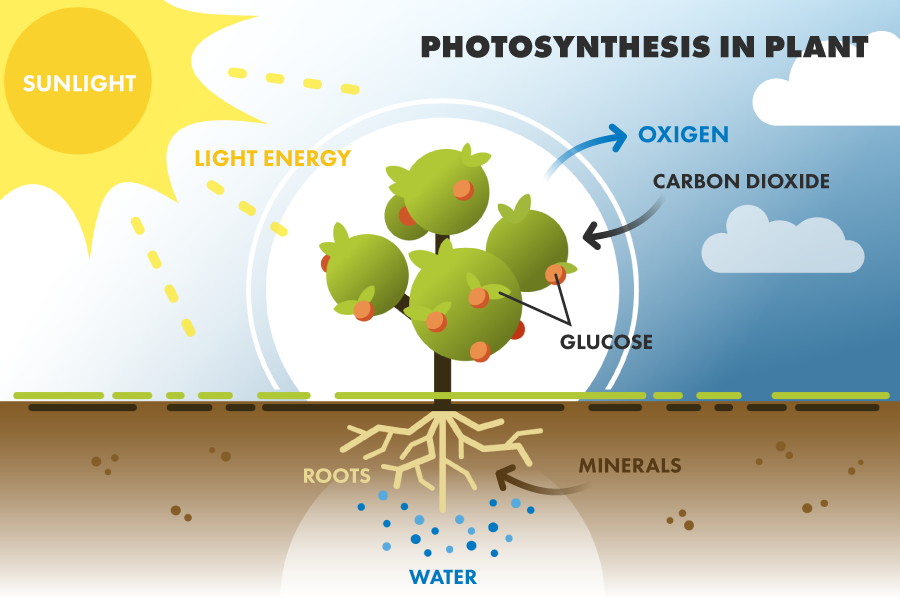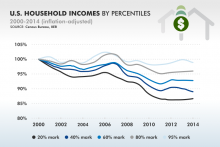数十年間にわたる成長が終わり、現在ほとんどの人は10-15年前よりも使える収入が少なくなっています。しかし、それがなぜなのかをうまく説明できる人は誰もいません。
2000年頃に人々がこれまでで最も裕福になった後、成長を回復するために数多の試みが行われてきたにもかかわらず、先進諸国におけるほとんどの世帯でインフレ率調整後の収入が縮小しました。
同じく、若者に対する見通しはますます暗く、その多くは家を買う為、あるいは貯蓄を増やすべく、高額な教育に見合った仕事を見つけようと必死になっています。
Latest articles
About energy&stuff - how to safely make it through the 21st century
After 10 years of mostly scientific work on understanding our human ecosystem, energy&stuff is
IIER
's first public outreach project. Given the very negative societal dynamics observed around the world, with hate and blame on the rise, we consider it relevant to instill a sense of reality into the discussion, hopefully supporting a different and more constructive dialogue moving forward.
3
Consuming less means leading a better life
There are so many things in life that can make you happier than "shopping therapy." We simply have to re-learn them. Once we embrace that and find ways to leave the struggle for "more" behind, we can live a great life with much less material wealth.
This website is providing you with many ideas and practical examples to make it happen in your personal life.

58
How can I contribute to a better future?
energy&stuff wants citizens to engage, no matter if you do this with us, in your community, in an organization, or in politics. If societies are going to master the challenges of the future, a large number of people need to better understand the dynamics of the world we live in, begin to change their thinking, their talking and their behaviors. We show you how to do that.

4
Of men and mice - how we're all prewired for growth
All living organisms are initially wired to proliferate to every ecological niche they successfully can exploit, no matter if we are talking about a petri dish of bacteria or a group of mice. As humans, we are initially wired the same way, but we have options.
58
Why economic science has a limitless world view
Economic science teaches that energy and natural resources play no role and that growth will continue as long as there is more labor and capital, supported by increasing productivity.
For over two centuries, this was true, but now, we've reached the limit, and our plans no longer work. We need new economic theories, or more precisely, return to older ones.
4
Funding the (on the surface) unfundable.
If an alien anthropologist - an impartial expert on humans and our culture - were asked to organize the perfect conditions for a human society to ignore and avoid preparing for a great systemic risk, he or she or it likely couldn’t construct a more perfect scenario than our current one.
3
Back to the future of economics, or: when economists were right
Economic theory wasn't always oblivious of natural resources, quite the contrary. Before the 20th century, most models included land avaialbility and productivity, a marker for the ability to convert sunlight into relevant outputs. Only during the 20th century, with the abundant availability of stored sunlight, this factor disappeared from theoretical models. Now, as we move away from easy fossil fuels, we need to go back to Adam Smith and his peers.
58
成長の限られた未来で残る選択肢は何か?
私たちの知る限り、この流れから抜け出す方法はありません。我々が自分達に更なる成長が必要ないと認識し、この新たな現実を受け入れれば、非常に大きな安心感を得られます。
残念ながら、当面のあいだ安定成長へ復帰することはありません。最後まで負け戦を続けたくないなら、「もっと少ない」世界を受け入れるほかありません。幸いなことに、「幸福」とは私たちにとって本当に必要なもので満たされている限り「収入」とは関係がないのです。
これはつまり、負の感情を放棄したうえで、新たな現実での生活を送っていく方法について積極的に考え始めなければならないということです。
140
私達の繁栄を支えてきたもの: エネルギーと天然資源
この変化の裏には長く忘れられてきた真実があります。それは、経済活動が盛んになればなるほど、より多くのエネルギーと天然資源が必要となるということです。
成長を維持する上での近年の問題を理解しようとするとき、私たちは旧来の真実、すなわち「経済活動が盛んになれば、より多くのエネルギーと資源を利用する」ということを再認識しなければなりません。
太陽光の力はこれまでずっと繁栄を後押ししてきましたが、産業革命が始まって以降、私たちは猛スピードで化石燃料 (=先史時代の日光) を活用してきました。

140
Renewable energy can only power a less rich future
All available evidence tells us that a return to energy system that mostly rely on renewables will significantly shrink our economic activity. Unfortunately, the new optimistic term "free solar energy" gives too many people an incorrect impression that we could migrate off fossil energy while maintainng our standard of living and economic growth.
58



